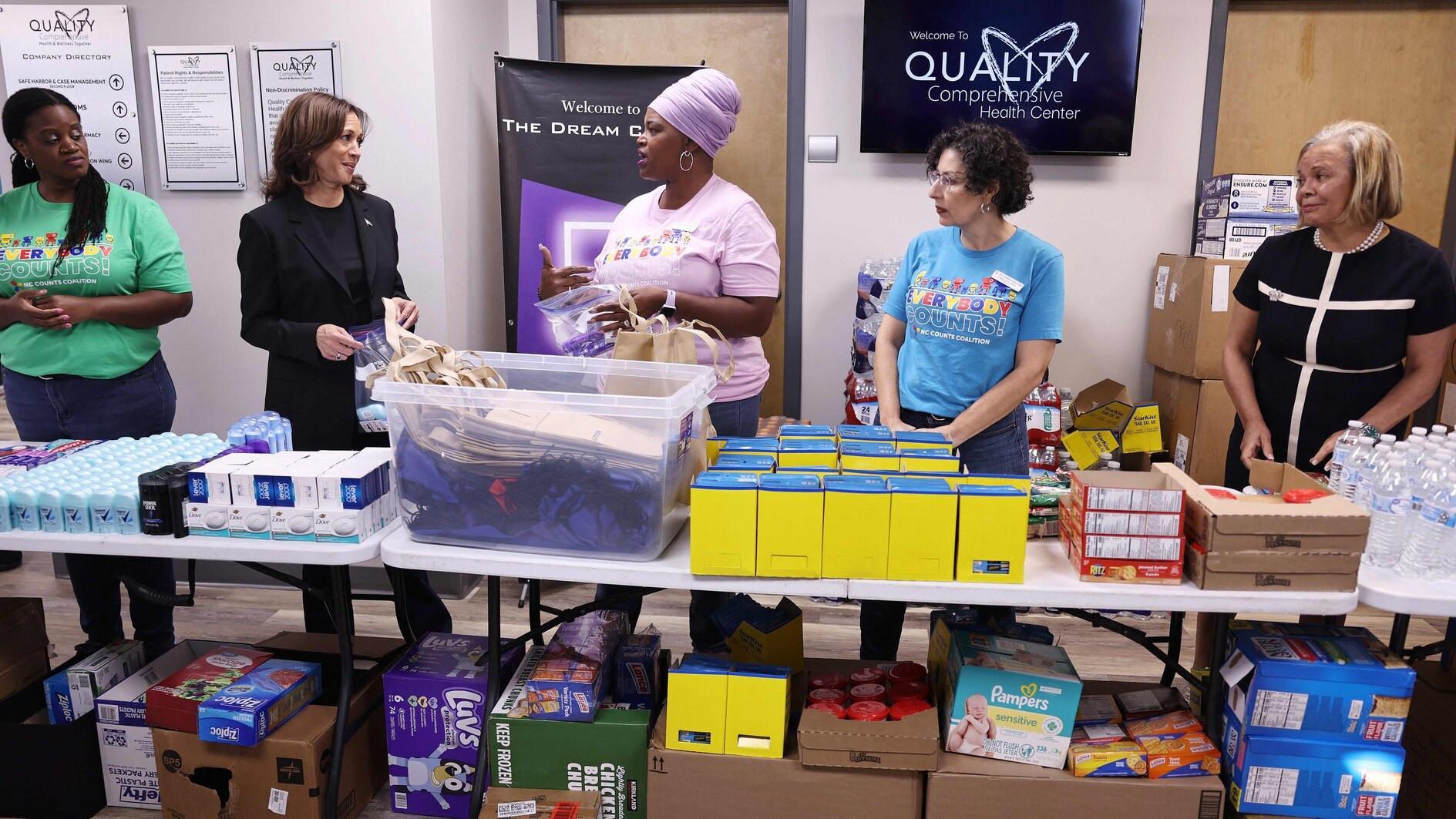
A pair of unwelcome and destructive guests named Helene and Milton have stormed their way into this year's presidential election.
The back-to-back hurricanes have jumbled the schedules of Democrat Kamala Harris and Republican Donald Trump.
The two hurricanes are forcing basic questions about who as president would best respond to deadly natural disasters, a once-overlooked issue that has become an increasingly routine part of the job.
And just weeks before the Nov. 5 election , the storms have disrupted the mechanics of voting in several key counties.
Harris is trying to use this as an opportunity to project leadership, appearing alongside President Joe Biden at briefings and calling for bipartisan cooperation.
Trump is trying to use the moment to attack the administration's competence and question whether it is withholding help from Republican areas, despite no evidence of such behavior.
Trump and Harris have separately gone to Georgia to assess hurricane damage and pledge support, and Harris has visited North Carolina, requiring the candidates to cancel campaign events elsewhere and use up time that is a precious resource in the final weeks before any election.
Both Georgia and North Carolina are political battlegrounds, raising the stakes.
Tension has begun to override the disaster response, with Biden saying that Trump has spread falsehoods that are “un-American.”
Harris has suddenly been a major part of the response to hurricanes, a role that traditionally has not involved vice presidents in prior administrations.
Trump and his allies have seized on the aftermath of Helene to spread misinformation about the administration's response. Their debunked claims include statements that victims can only receive $750 in aid as well as false charges that emergency response funds were diverted to immigrants.
The former president said the administration's response to Helene was worse than the George W. Bush administration's widely panned handling of Hurricane Katrina in 2005 , which led to nearly 1,400 deaths.
John Gasper, a Carnegie Mellon University professor, said storm victims generally want to ensure foremost that they get the aid they need.
“These disasters essentially end up being good tests of leadership for local, state and federal officials in how they respond," he said.
But Gasper noted that U.S. politics have gotten so polarized and other issues such as the economy are shaping the election, such that the debate currently generating so much heat between Trump and the Biden-Harris administration might not matter that much on Election Day.
“On the margin, it will matter," he said. "Will it define the election? Probably not. There’s so many other things out there.”